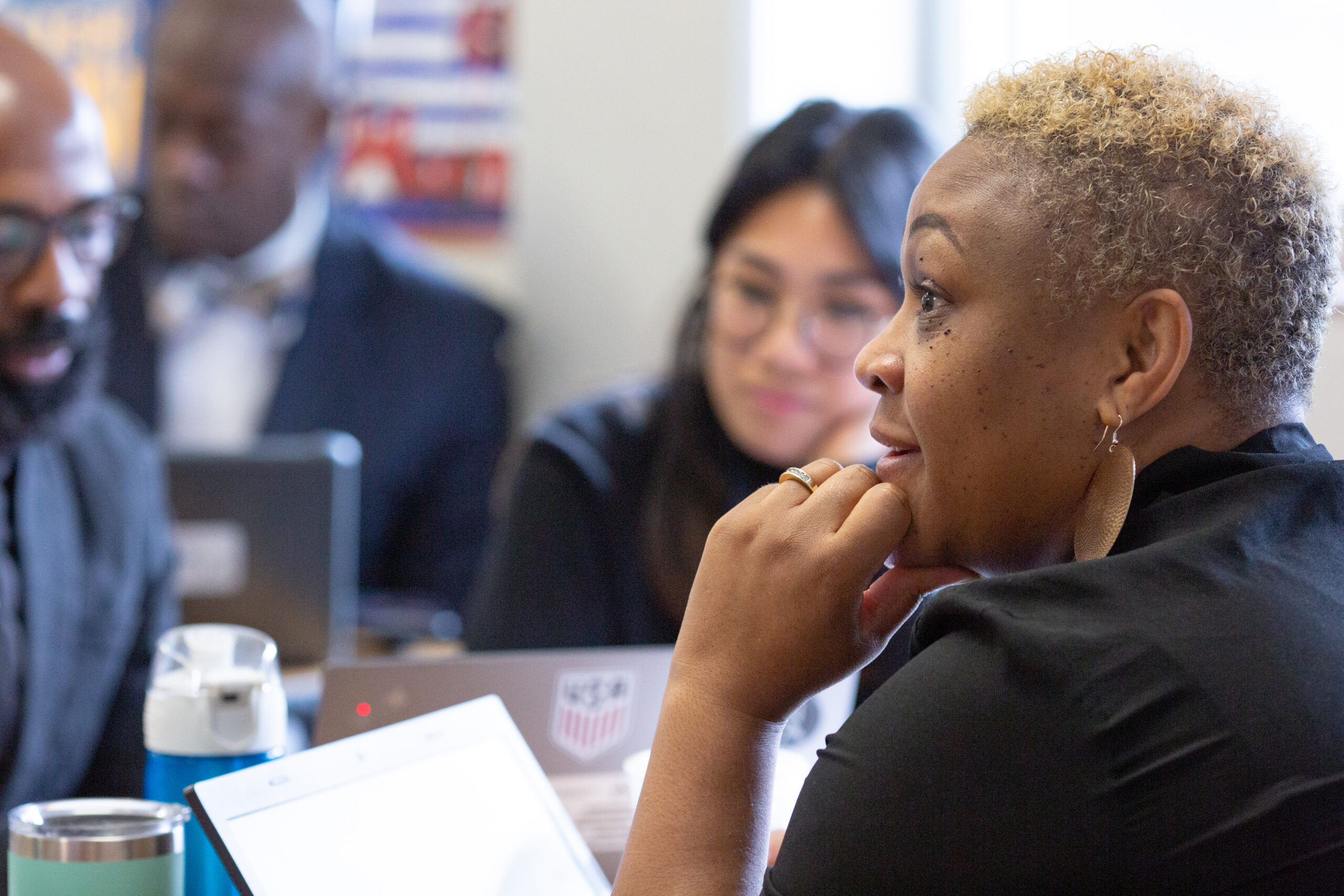Equitable Outcomes Wallet
Evidence in Action: New Roots Institute
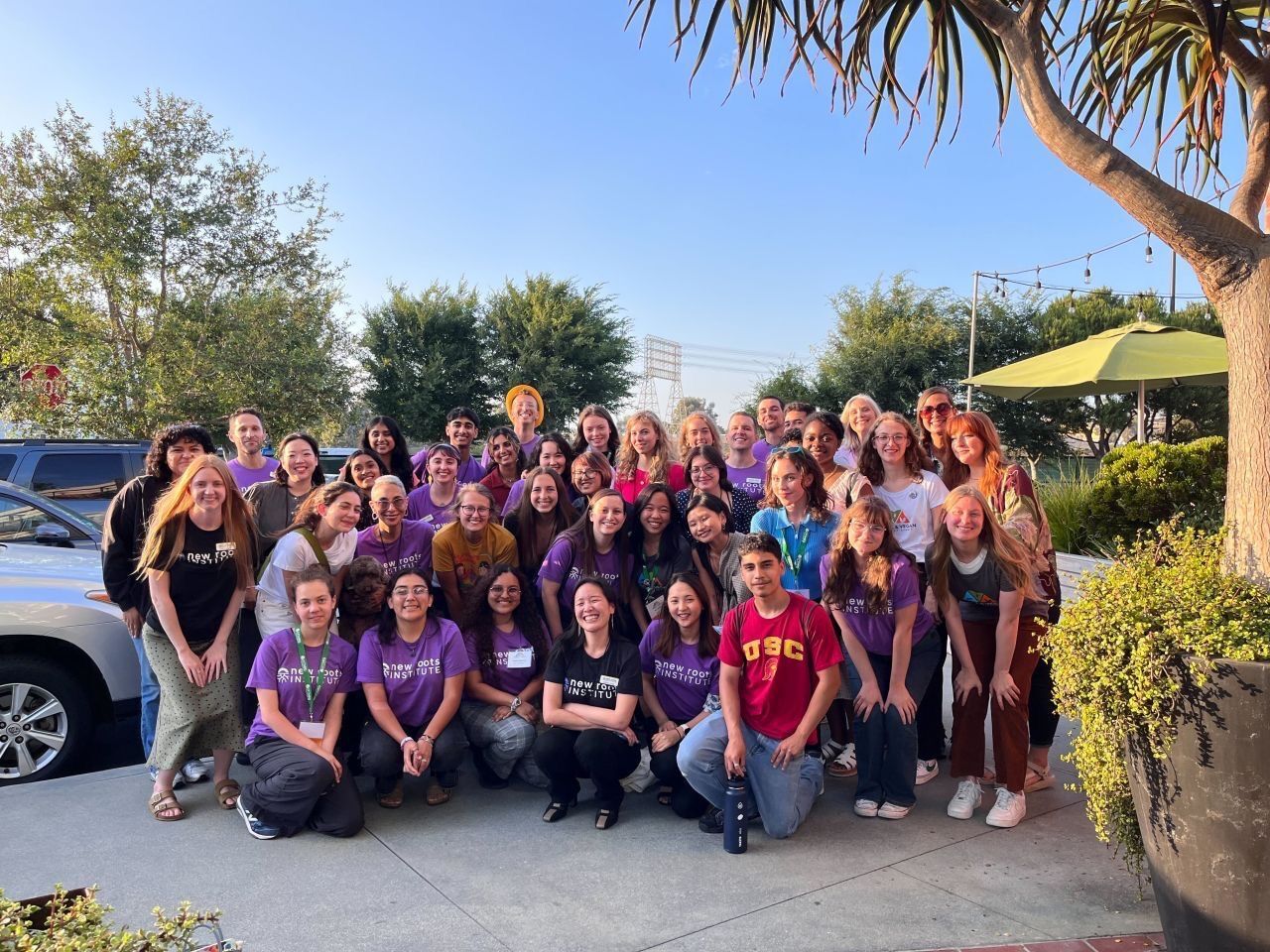
Q&A with Monica Chen
Project Evident’s Equitable Outcomes Wallet provides early-journey nonprofit organizations, especially those led by women or people of color, with free resources and technical assistance to help them deliver strong, equitable outcomes for their communities. As part of this work, Project Evident recently partnered with New Roots Institute (formerly Factory Farming Awareness Coalition). New Root’s mission is to end factory farming by educating students and mobilizing support for a just and sustainable food system for all. The organization regularly distributes surveys to students, but wanted assistance retooling these surveys to better measure its impact. Project Evident connected New Roots Institute with one of the Equitable Outcomes Wallet’s technical assistance providers, Dr. Erika Van Buren, who helped the organization think critically about its intended impact and ultimately to find a way to tell a more cohesive narrative of both its work and mission.
Kaylan Moore, Associate Director of the Equitable Outcomes Wallet at Project Evident recently spoke with New Root’s Institute’s Executive Director Monica Chen, about the organization’s experience working with the Equitable Outcomes Wallet.
Monica Chen
New Roots Institute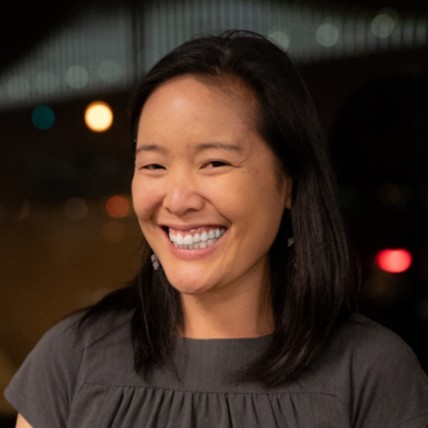
Kaylan Moore
Project Evident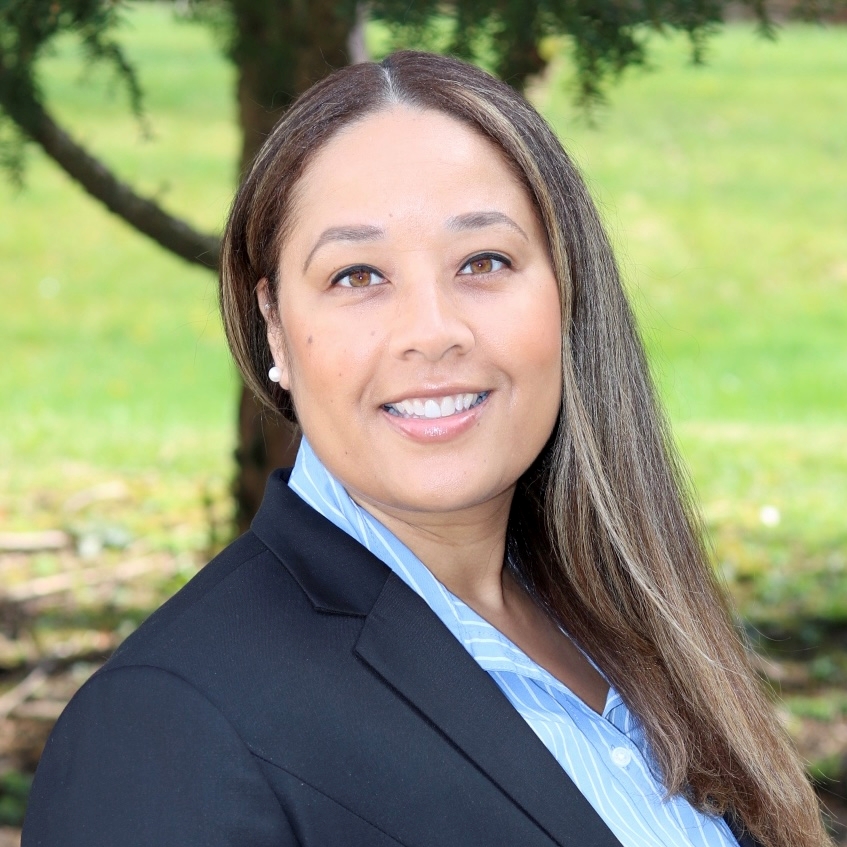
Kaylan: Can you tell us more about your organization? Who do you serve? Where do you work and what types of outcomes are you focused on?
Monica: This is an exciting point in our organization’s history. For 13 years, we were known as Factory Farming Awareness Coalition; this summer, we became the New Roots Institute. It took a year to develop and included a lot of work with Project Evident; which I want to credit for helping us get to this point.
We started off as an organization that was giving presentations in schools. Back in 2010, a recent University of California Berkeley graduate recognized there were courses in schools talking about the environment, social justice, public health, etc… but these courses weren’t directly making the connection to our food system and factory farming. She asked faculty if she could give presentations on these topics, and our organization grew from there. Our presentations are really well-received because we are not a shaming organization; we’re about meeting people where they are, aligning to the standards, and just raising awareness of the cause.
When the pandemic hit, we had to retool all of our programming because we had been physically in the schools. We shifted our approach from giving presentations to doing lessons and Socratic-style seminars. We also started using our educational outreach as a recruiting mechanism for our leadership program—a year-long fellowship where students have the opportunity to learn in greater detail the impacts of factory farming and do project work. Because we already have a relationship with schools (we have 113 high-engagement schools), the student body is more likely to support campaigns such as plant-based defaults. We’ve been able to do a lot of this work with high school and college students for the past 13 years now, and we’re really excited about where we’re headed as an organization.

Kaylan: Why did your organization choose to engage with the Equitable Outcomes Wallet?
Monica: When I first became executive director, we received most of our funding from a single donor, and I am extremely grateful for that individual who continues to support us. But it was clear to me that we needed to diversify our funding, have meaningful ways of measuring our impact, and ensure our mission wasn’t driven by a single person. So over the past few years, we’ve really taken a step back and looked at the macro-level perspective of how we are going to end factory farming. We really worked to define our niche and shifted our organization to focusing on Objectives and Key Results (OKRs).
Metrics really do matter, and while I don’t think that is a controversial statement per se, it has been somewhat touchy in some nonprofit spaces as funding can often hinge on metrics that might not make sense for an individual nonprofit. While not everything is measurable, I have recognized that metrics are extremely impactful and can help us learn what we should prioritize, what experiments we should run, and how we can measure progress.
I was grateful to have this opportunity to work with the Equitable Outcomes Wallet because my organization lacked both the capacity or expertise to be able to do this sort of work. I was fortunate to be part of a group of executive directors working with RevJen, and a consultant who was working for the Wallet reached out to me to get my feedback about the experience. So I asked if we could learn more about the Wallet and its services, and I was so impressed by its vision and the critical need that it serves.
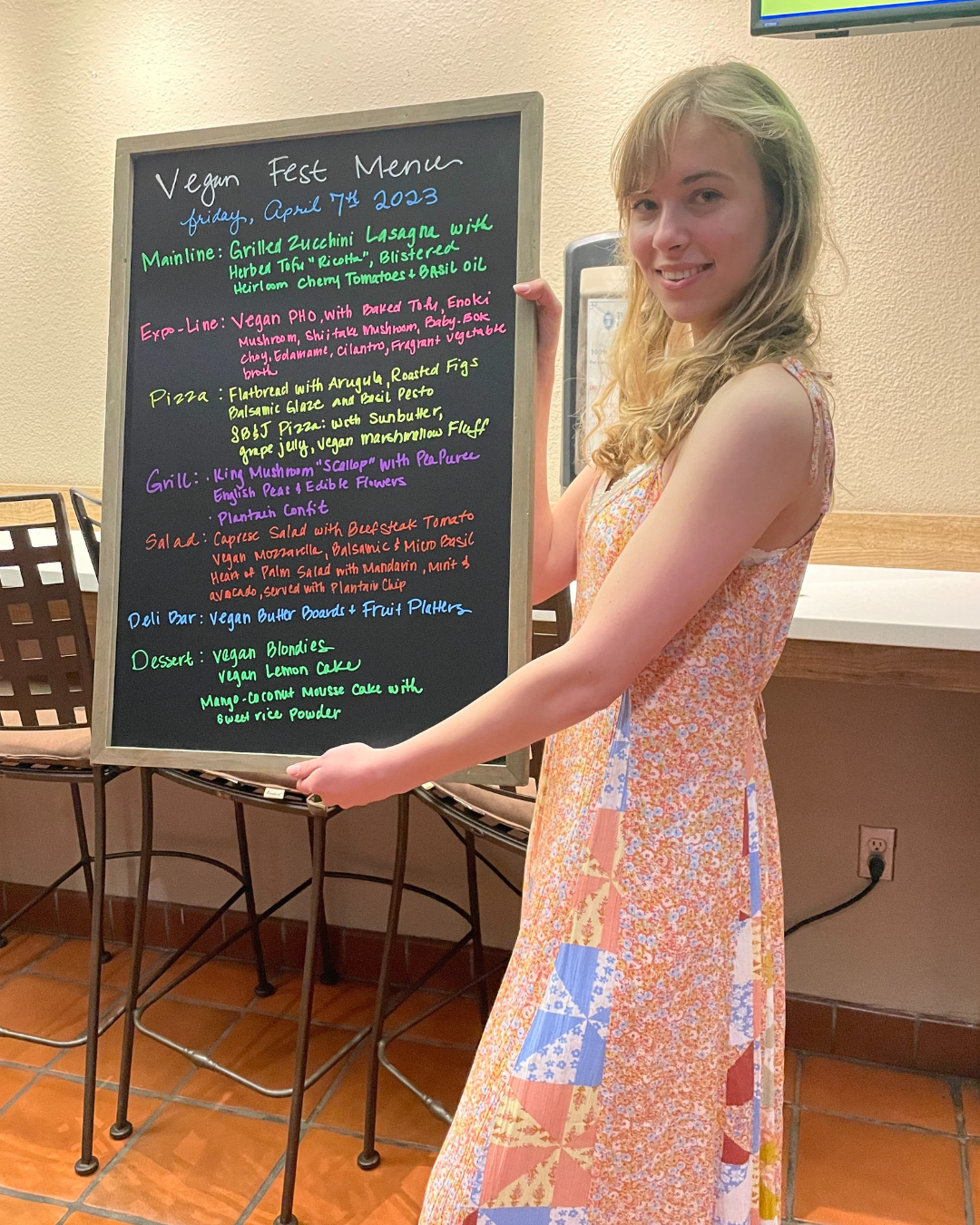
“While not everything is measurable, I have recognized that metrics are extremely impactful and can help us learn what we should prioritize, what experiments we should run, and how we can measure progress.”
Kaylan: How do you see the role of evidence in supporting your organization’s strategy and mission?
Monica: Our mission is to empower the next generation with the knowledge and training to end factory farming. That is a very broad mission, so within that we have some specific goals that are narrower in scope. We would not be able to look at our organizational effectiveness and the efficacy of our work without having these metrics in place. Prior to working with Project Evident, we distributed surveys to students in classrooms, but they were extremely limited in terms of the kind of data we were able to collect. We struggled to tell cohesive stories from the data, and we weren’t really able to measure our impact.
In order to achieve our mission, we needed to be really clear on what we were doing to get there.
Working with Project Evident, we completely changed our surveys. We added in more nuanced questions, which has enabled us to put together a far more cohesive strategy instead of just giving presentations in schools. We give lessons where we’re shifting students’ perceptions on what they would vote for, what kinds of foods they would choose to eat, and then we’re recruiting students in those same schools to go do work with that receptive student body. That’s a big change in strategy, which wouldn’t have happened without the support of an organization like Project Evident.
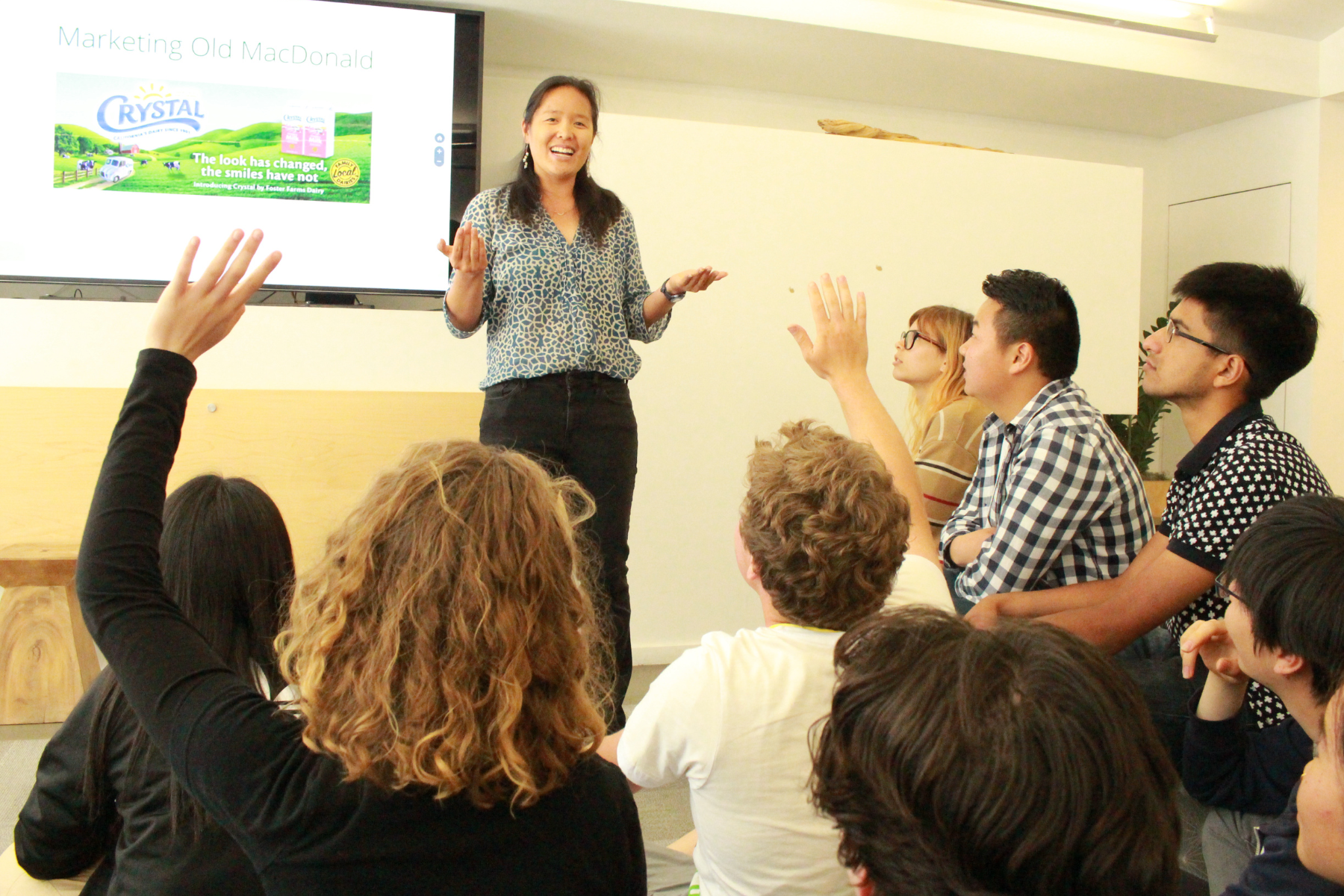
“Prior to working with Project Evident, we distributed surveys to students in classrooms, but they were extremely limited in terms of the kind of data we were able to collect. We struggled to tell cohesive stories from the data, and we weren’t really able to measure our impact.”
Kaylan: What advice do you have for other organizations that are just getting started with evidence building and use?
Monica: If the organization is like ours and doesn’t have really easy-to-measure metrics, it can be difficult to get started. It’s critical to take a step back, see how you fit into the larger picture, and think about what you could be doing and where you see the opportunity and then measure for that. It’s so important to be clear on your strategy and not compare yourself with every other intervention that exists because they are all different.
But I suppose my first piece of advice is to work with Project Evident. It has been invaluable to work with Dr. Erika Van Buren who does this kind of work regularly with other nonprofits. She was very helpful in getting us to this point.
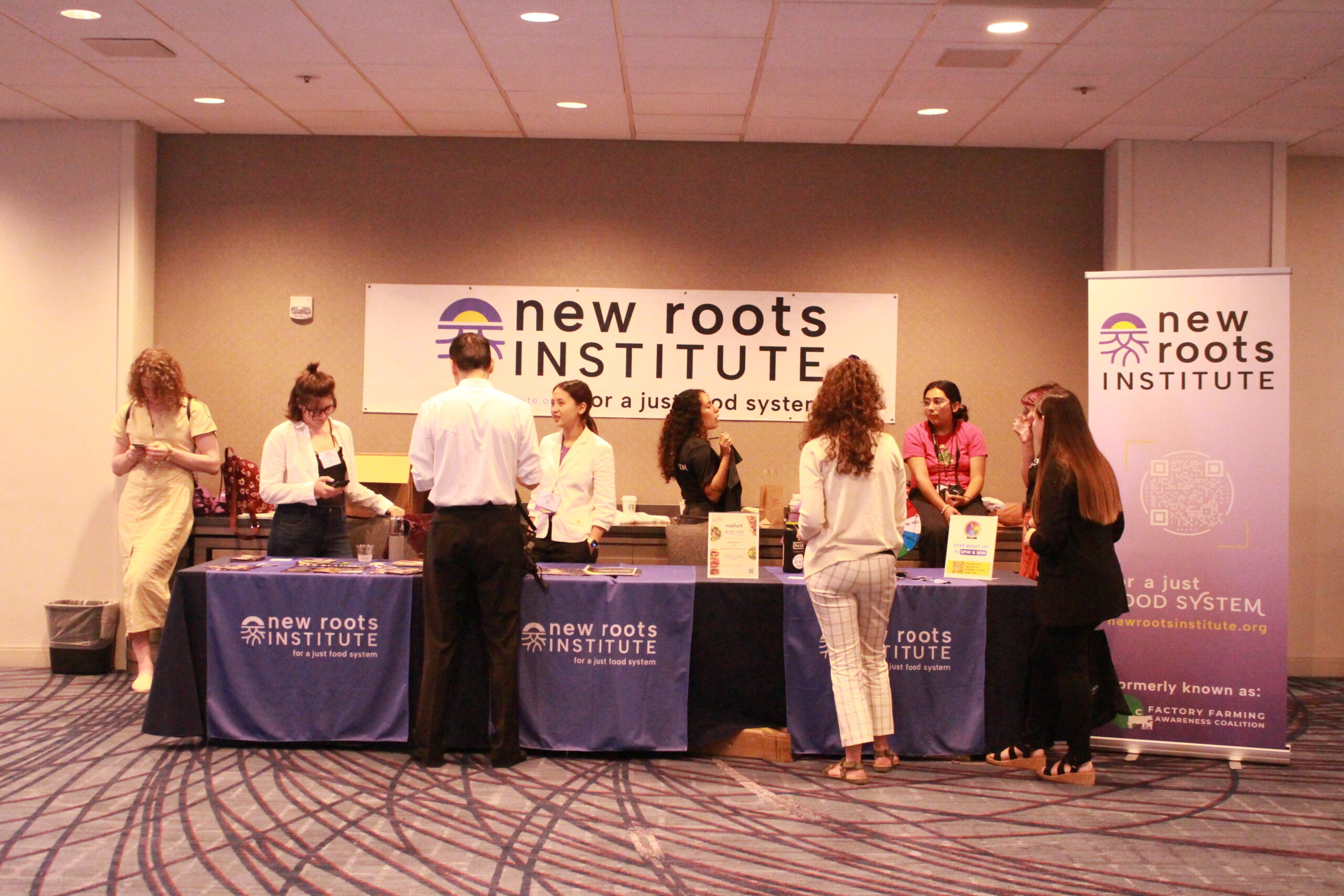
Kaylan: Is there anything else you’d like to add?
Monica: I’ve been very impressed by the team at Project Evident and the deep commitment they display to this work. Organizations on their own can only do so much. This work was very meaningful to us, as we were going through a major organizational transformation at the time. I hope Project Evident will continue to receive support from many different stakeholders, including funders, because it’s these types of organizations that help the entire base of nonprofits. It’s very frustrating when nonprofits have to do it all on their own—as many of us cannot afford to hire expensive consultants and navigate through the process on our own. For us, being able to go to Project Evident for free and be matched with someone as competent as Dr. Erika Van Buren is invaluable. Not only did it save us incredible amounts of time, but I feel very energized knowing that we’re actually doing work that is making a difference, thanks to working with Project Evident.
“It’s very frustrating when nonprofits have to do it all on their own—as many of us cannot afford to hire expensive consultants and navigate through the process on our own. For us, being able to go to Project Evident for free and be matched with someone as competent as Dr. Erika Van Buren is invaluable.”
Join Us
Equitable Outcomes WalletWith critical philanthropic support from the Barr Foundation, MacKenzie Scott, and Bank of America, the Equitable Outcomes Wallet supports under-resourced organizations in using data and evidence to drive stronger and more equitable outcomes. If you're a practitioner looking for no-cost resources, a funder interested in supporting this work, or a technical assistance provider interested in joining our network of partners, click here to learn more and join us.
Learn More